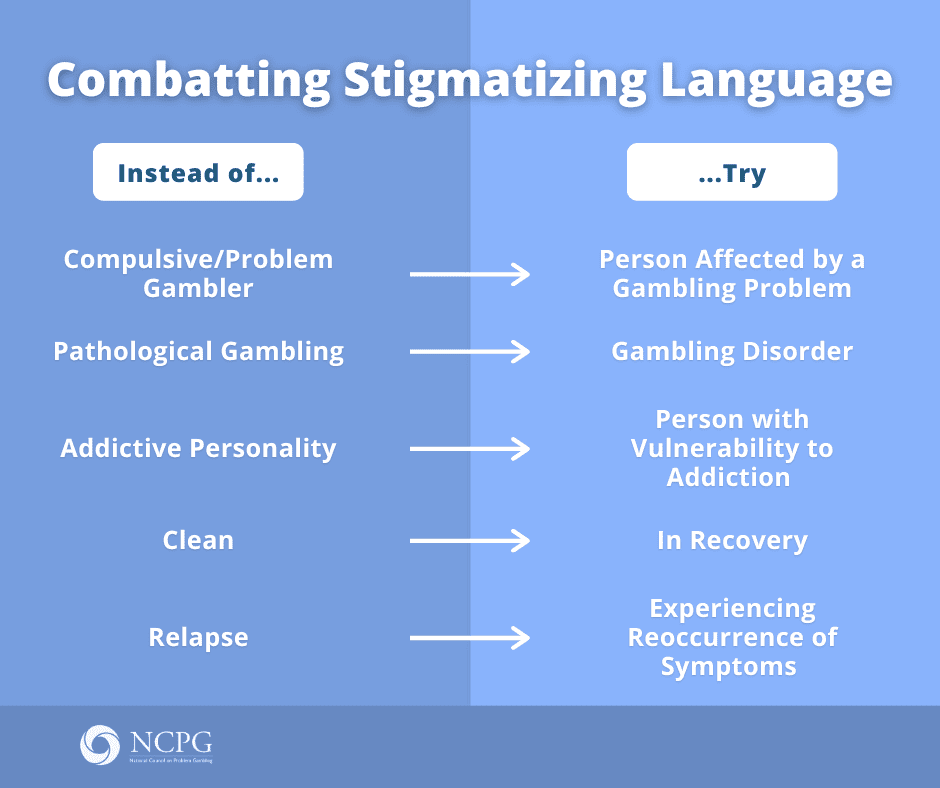
Breaking the Stigma: Why Language Matters When Discussing Problem Gambling
The language we use when discussing gambling disorders significantly impacts those affected by them. Stigmatizing language can create barriers to treatment and recovery, while person-first language promotes understanding and support.
Language plays a crucial role in shaping perceptions and attitudes toward gambling disorders. Using appropriate terminology isn't just about political correctness—it's essential for reducing stigma and supporting those affected by gambling problems.

Stigmatizing vs neutral gambling terminology guide
Key principles for discussing gambling disorders:
- Use person-first language that separates the individual from their condition
- Avoid dehumanizing or marginalizing terms
- Focus on recovery and solutions rather than shame
- Recognize gambling disorder as a secondary attribute, not a defining characteristic
- Share recovery stories that inspire hope and encourage treatment-seeking
The impact of stigma:
- Creates barriers to seeking treatment
- Increases shame and self-stigma
- Discourages open discussion about gambling problems
- Perpetuates harmful stereotypes and misconceptions
Support is available for those struggling with gambling problems through the National Problem Gambling Helpline:
- Call: 1-800-GAMBLER
- Text: 800GAM
- Chat: www.1800gamblerchat.org
- Available 24/7
- Free and confidential
By using appropriate, non-stigmatizing language, we create an environment where people feel comfortable seeking help and sharing their recovery journeys. Every person affected by gambling disorder deserves to have their story told with dignity and respect, free from judgment or shame.
Help is available, and recovery is possible. Through mindful language choices and supportive communication, we can build a more understanding and compassionate community for those affected by gambling disorders.
